The Banaag syllabary is the creation of Frederick Victor Paredes Añana. The syllabary is designed to write Tagalog and was to some extent modelled on the Tagalog (Alibata) syllabary and Japanese Katakana.
The appearance of each symbol was inspired by various objects, body parts, human gestures and human activities. For example, the symbol for "a" is the first letter of the Tagalog word alay which means to offer (the symbol resembles a person in the act of offering); the symbol for "i" is the first letter of the Tagalog word ipin which means teeth (the symbol resembles human teeth); symbol for "u" is the first letter of the Tagalog word upo which means to sit down (the symbol resembles a person sitting down).
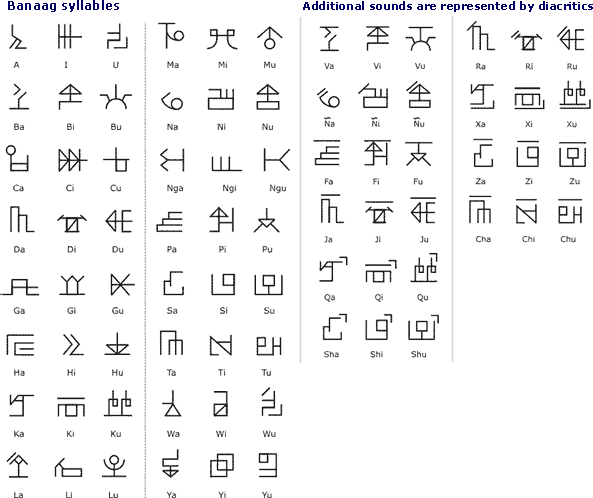
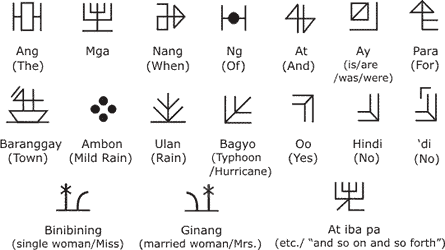
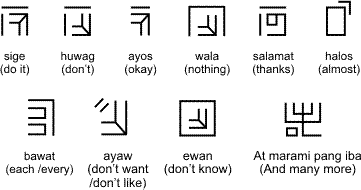
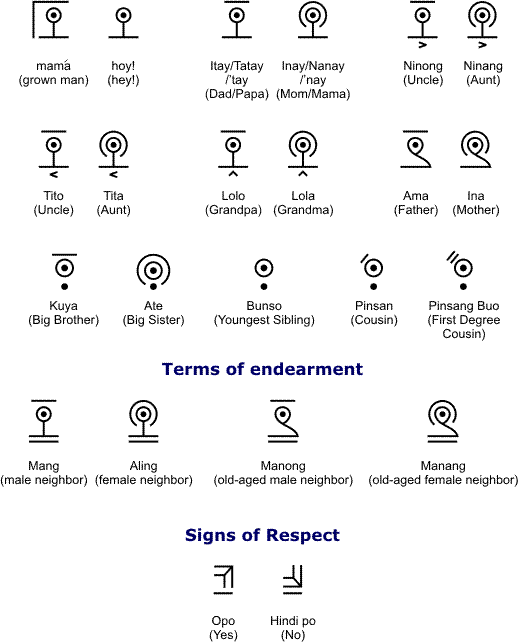
In Tagalog the words opo and hindi po /'di po are only used when talking to an older person or someone of high authority.

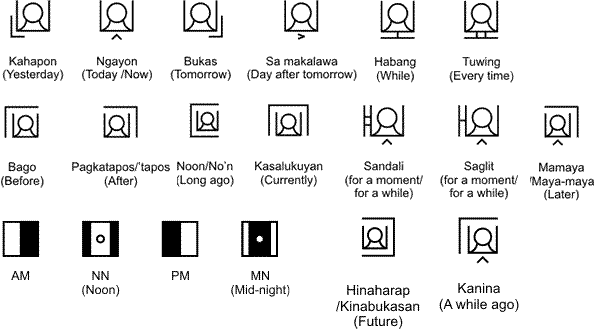
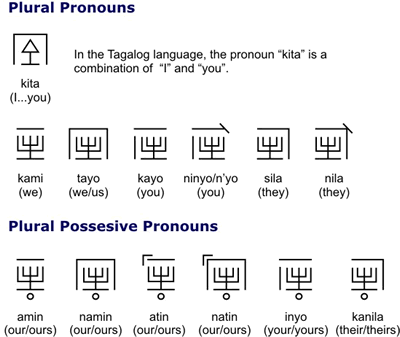
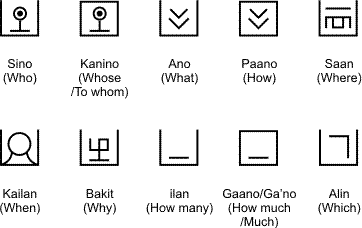


A dot under a symbol is used to lower the pitch of the vowel sound. So that "i" becomes "e" and "u" becomes "o". The inherent "a" sound of a particular consonant is muted by flipping the entire symbol horizontally.

In the Tagalog grammar, the word "mga" (pronounced as ma-nga)
is used to pluralize a singular noun.


Ang lahat ng tao'y isinilang na malaya at pantay-pantay sa karangalan at mga karapatan. Sila'y pinagkalooban ng katwiran at budhi at dapat magpalagayan ang isa't isa sa diwa ng pagkakapatiran.
All human beings are born free and equal in dignity and rights. They
are endowed with reason and conscience and should act towards one another
in a spirit of brotherhood.
(Article 1 of the Universal Declaration of Human Rights)
Information about Tagalog | Baybayin script | Phrases | Numbers | Time | Tongue twisters | Tower of Babel | Books about Tagalog on: Amazon.com and Amazon.co.uk [affilate links]
Alfa-kinetix, Alfa-Larawan, Banaag, Maharlikang
Constructed scripts for: Ainu | Arabic | Chinese languages | Dutch | English | Hawaiian | Hungarian | Japanese | Korean | Lingala | Malay & Indonesian | Persian | Tagalog / Filipino | Russian | Sanskrit | Spanish | Taino | Turkish | Vietnamese | Welsh | Other natural languages | Colour-based scripts | Tactile scripts | Phonetic/universal scripts | Constructed scripts for constructed languages | Adaptations of existing alphabets | Fictional alphabets | Magical alphabets | A-Z index | How to submit a constructed script
[top]
You can support this site by Buying Me A Coffee, and if you like what you see on this page, you can use the buttons below to share it with people you know.

If you like this site and find it useful, you can support it by making a donation via PayPal or Patreon, or by contributing in other ways. Omniglot is how I make my living.
Note: all links on this site to Amazon.com, Amazon.co.uk
and Amazon.fr
are affiliate links. This means I earn a commission if you click on any of them and buy something. So by clicking on these links you can help to support this site.
[top]